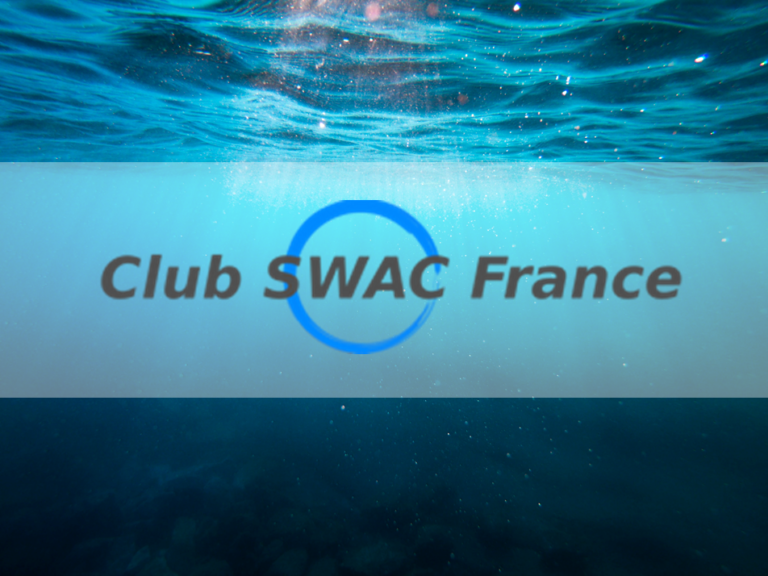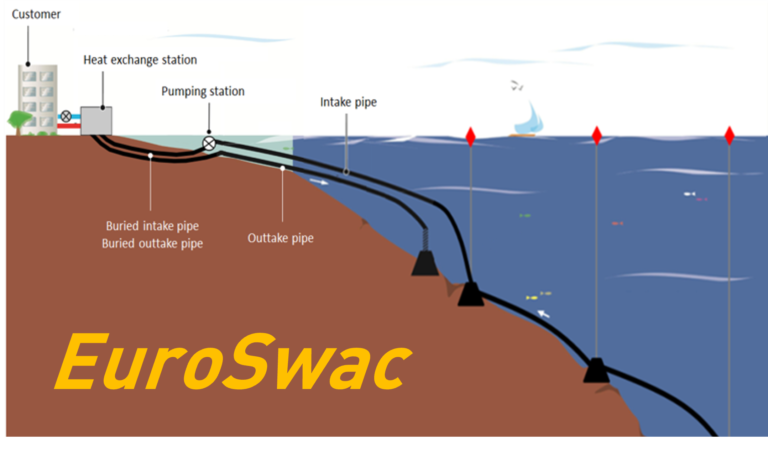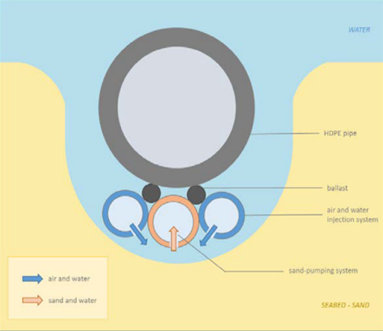
The Plymouth University, partner of the EuroSwac project, aims to promote creative solutions to reduce and optimise SWAC impact on environment.
University of Plymouth – the home of marine and maritime research, education and innovation
The University of Plymouth has long held an outstanding international reputation for conducting world-leading and impactful marine and maritime research, teaching and innovation.
Its pioneering research responds to 21st-century global challenges through a systems-thinking approach to solutions, advancing knowledge on topics including: climate change; clean maritime; offshore renewable energy; storm impacts; maritime cybersecurity; habitat destruction and biodiversity; and the blue economy, all framed against the socio-political dimensions that explicitly link the land and the ocean.
Marine technology expertise, facilities and equipment
The city is a hub of marine innovation. It is home to the UK’s first National Marine Park, which also hosts the autonomous technology testbed, Smart Sound Plymouth. Oceansgate and Plymouth Freeport are significant additions to the city’s thriving industry sector, which is underpinned by Marine Research Plymouth, a collaboration between the three world-leading marine science institutions of the University of Plymouth, Plymouth Marine Laboratory and the Marine Biological Association. This, alongside, collaborations with regional partners such as the Met Office and the UK Hydrographic Office, cements Plymouth’s position as a powerhouse for scientific and commercial developments in marine and maritime sectors.
The University of Plymouth’s is at the forefront of innovation in marine technologies, advancing knowledge through research underpinned by a wealth of marine and environmental intelligence capabilities. Few institutions can compete with the suite of technology, facilities and specialist expertise, from creating new sensor technology to innovating platform applications.
The University’s expertise coastal engineering spans decades, developing many aspects of technology and knowhow in offshore renewable energy (ORE), leading to increased economic value for collaborating developers and also graduate employment and student placements with industry partners. As the lead of the EPSRC Supergen ORE Hub, a £9 million consortium bringing together academic, industry and policy, Plymouth is instrumental in shaping the UK’s ORE agenda. Plymouth develops key skills through the UK’s first MSc Marine Renewable Energy (MRE), alongside undergraduate and postgraduate programmes in coastal engineering and marine technology.
University of Plymouth’s role in EUROSWAC
The importance of optimising environmentally friendly seawater air conditioning solutions provides new innovative opportunities for economical renewable energy resource. The University’s research aims are to advance new technologies for sustainable energy storage while promoting creative solutions to reduce and optimise SWAC impact on the surrounding environment.
Plymouth’s research will explore use of potential energy recovery heat pump and efficient pipe designs to maximise energy utilisation efficiencies, complemented by cutting-edge analytical and numerical modelling to assess delivery infrastructure distribution and associated impact of warm or cold water reject on the marine environment.
The proposed research will utilise facilities at University of Plymouth’s Brixham Laboratory, an environmental testing laboratory, which has the necessary licenses and infrastructure to extract and discharge seawater as a demonstration site for the EUROSWAC project. The developed theoretical and numerical models will be validated against data from experimental findings.
World-class facilities
The University of Plymouth has invested in exceptional facilities include direct waterside access and fleet of research vessels at the £5 million Marine Station, the unique Brixham Laboratory with unmatched aquaculture capabilities, and the state-of-the-art £19 million Coastal, Ocean and Sediment Transport (COAST) Laboratory – a critical specialist asset nationally for marine and coastal engineering, and renewable energy research.

The Brixham Laboratory is a hub for local, national and international businesses, home to over 25 tenant organisations across the marine, photonics, business services and charity sectors. The anchor tenant, Scymaris, provides ecotoxicology, environmental and analytical chemistry services to the agrochemical, pharmaceutical and chemical industries.
EUROSWAC aims to develop and test in real life conditions a SWAC prototype at the Brixham Laboratory and National Lobster Hatchery in UK. This shallow-water based SWAC system will be the first to support enhancing aquaculture food-stock, which will represent major benefits in regards to CO2 emissions, lifespan and costs compared to existing solutions.







